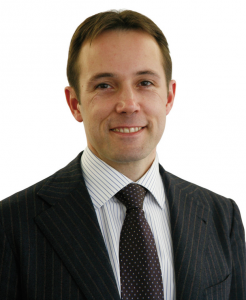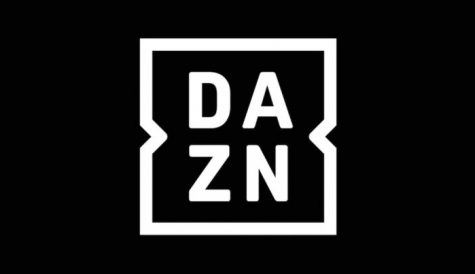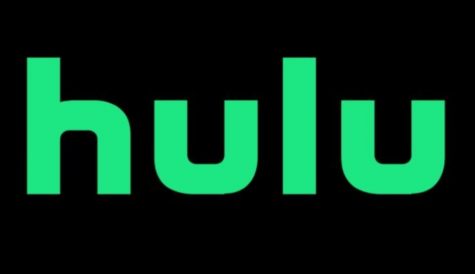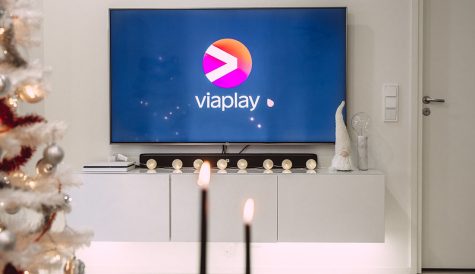
After more than 40 years of operation, DTVE is closing its doors and our website will no longer be updated daily. Thank you for all of your support.
Cable Congress 2015 interviews: Harald Rösch, Blizoo
Cable operators face many challenges in emerging markets such as Bulgaria. Harald Rösch, CEO of the country’s leading cable operator Blizoo talked to DTVE’s Stuart Thomson about the prospects for growth.
On top of the challenges faced by their peers in western European markets, such as competition from telecom operator rivals and the appeal of OTT TV services, cable operators in parts of eastern Europe often face an array of additional challenges, ranging from a lack of clear regulations to systemic under-reporting of subscribers by grey-market rivals.
Few markets are tougher than Bulgaria, where the leading local cable operator Blizoo faces a wide range of challenges. Emerging from a period of financial difficulty that also saw its revenues shrink year-on-year, the company, led since the beginning of last year by former Kabel BW chief executive Harald Rösch, is now looking to growth and the development of new services.
“Our main objective is growth,” says Rösch, who adds that the group achieved a modest uplift of about 2% in 2014. The company currently has about 370,000 customers, including 330,000 TV subscribers and about 250,000 broadband customers.
“Blizoo was close to bankruptcy and the most important thing has been to save the company,” he adds. However, the operator is now focusing on operational rather than financial issues. Rösch says the company is now self-financing with a customer base that has grown for two consecutive years after a period of decline. “The challenges we face are now about the competitive environment,” he says.
Competitive environment
Blizoo is facing competition not only from mobile players who are investing in fixed-line offerings but – more damagingly, from grey-market local players that overbuild their networks in the same footprint and systematically under-report their subscriber numbers in order to keep their costs at a minimum.
“It’s widely known that [these operators] do not pay what they should pay to content providers. We are paying 25% [of revenues] to rights-holders, which is very high. If you compare that with those who don’t pay it’s clear it’s tough,” says Rösch. “The small operators are offering extremely low prices that are below the level of what they should pay for rights. It is clear that many competitor networks are not operating in the same legal framework as we are.”
Rösch says he has difficulty understanding why the European Union continues to support what are essentially grey-market operators by handing out funds. “It is not positive for the market as a whole,” he says. While the EC has offered support to some worthwhile fibre initiatives, in other instances companies that are known to underpay rights holders have secured funding, he says. “The EC is supporting grey-market competition,” he says. However “proving that these companies are actually not paying” what they should is difficult.
Legitimate competitors such as market leader Vivacom are “price aggressive”, but “at least they are competing honestly and not cheating”, says Rösch. “They face the same problem that we are facing. The legal framework is a real issue.”
Despite these problems, Blizoo is working on optimising sales and marketing of its products as well as preparing for the launch of a non-linear TV offering. Rösch says the advanced TV service has been in development since last year.
Blizoo has teamed up with set-top box maker ADB for its advanced TV offering. The first services are likely to be available in the second or third quarter of this year, beginning with a seven-day catch up service. Then, says Rösch, Blizoo plans to add features such as network-based DVR – depending on the availability of rights, along with an OTT offering targeted at mobile and other devices, offering both linear and non-linear content.
Broadband and mobile
Blizoo has been active in high-speed broadband for a number of years, having launched its Fiber Power service four years ago. The company has upgraded its network to DOCSIS 3.0 across the vast majority of its footprint. Rösch admits that networks in the region do not compare with western European infrastructure in terms of reliability, although they can compete on raw speed. About 30% of the access network is in the form of aerial cable plant, which is vulnerable to outages compared with underground infrastructure. “It will take a long time to get it all underground,” says Rösch. However, this is the long-term goal, not least because there are growing regulatory requirements and pressure to relocate aerial cables underground.
Rösch says the company does not currently have a plan in place to deploy DOCSIS 3.1, the latest version of the DOCSIS data-over-cable standard that will theoretically allow operators to manage much higher volumes of data over their HFC networks as well as providing even higher speeds to compete with fibre-to-the-home networks. “We don’t have a plan for DOCSIS 3.1 at the moment as this would require substantial investments. We have other priorities but at least we will start to offer 200Mbps downstream,” says Rösch.
In addition to its plans in TV, Blizoo under Rösch is also entering the mobile space, teaming up with the country’s fourth-ranked mobile operator to develop – initially – a data-only offering. “We also hope to offer voice, hopefully by the end of the year,” says Rösch.
In addition, the group is looking at deploying WiFi, although it does not currently offer public WiFi hotspots, and developing its business-to-business portfolio.
Rösch says Blizoo has already had considerable success in selling bundled offerings in the Bulgarian market.
“We have offered double and triple-play [for some time] and 55% of our base are bundled customers,” he says, adding that quad-play competition – the bundling of mobile with fixed-line services – is already a fact in the Bulgarian market, and not in a way that has benefited Blizoo. Of the big four players, he says, two are mobile operators that offer discounted prices on fixed services to their existing mobile customers, while charging more to fixed-only customers. Rösch says that Blizoo, faced with deep discounting of this sort, “can’t compete on price”.
Entering mobile is therefore essential for the cable operator. However, Rösch admits that the company is having to think creatively about how it approaches the mobile business, not least because it is currently prevented from competing in mobile voice, thanks to regulatory restrictions, the lack of a mobile number range and the absence of roaming agreements.
“We are not going to be a full competitor in mobile immediately. We are going to be pretty competitive in data but this will not move the market,” he says. “It is something that will evolve over time.” He suggests that “there are many things going on” in the market, including the development of voice-over-WiFi, where Blizoo could compete more easily. The company already offers an app that enables customers to port their fixed-phone service to smartphones via WiFi. “We believe our product will become more competitive, although it will have limitations this year,” he says.
Competing on quality
More generally, says Rösch, Blizoo is positioning itself to compete on quality, something that enables the operator to differentiate its service from grey-market competitors that undercut it on price.
“We are winning where we can offer good, reliable quality because our customers are quality-sensitive,” he says. “When you offer reliable Quality of Service, you can sell your services at a higher price. We have been able to achieve a substantial reputation for quality.”
Rösch says that Blizoo has achieved very high Net Promoter Scores in consumer surveys, referring to the international cross-industry customer loyalty metric. “It is higher than in western Europe. We are offering a fair service that is reliable and that is unusual for the Bulgarian market,” he says.
Blizoo’s network currently covers half of the country. Rival operators with limitations on their fixed-line coverage have turned to alternative technologies including satellite to provide services outside their footprint. However, Rösch says Blizoo has no plans to do this. “We are extending the network year-by-year in small steps,” he says, adding that the economics of building out infrastructure are improving all the time.
An alternative strategy – consolidating smaller players – is freighted with problems. “Consolidating the small guys involves you in piracy problems,” says Rösch.
Piracy – through under-reporting of subscribers – means that the valuation that could realistically be placed on such operators is low or even negative. Rösch says that Blizoo has had little success in identifying viable candidates for acquisition, given the extent of the problems. “If the regulatory framework improves and more people respect the rules you could envisage consolidation,” he says.
Despite the myriad challenges facing him – including the fact that Bulgaria is the poorest country in the EU and has experienced a flight of talented people to western Europe – Rösch says that he is still hopeful about the company’s prospects, and those of the Bulgaria itself.
“Law enforcement is a big issue, but this is not a bad country. One thing that is positive is that there is a base of technically skilled people who can build things of good quality at a low cost,” he says. That ability to improvise and find practical solutions to problems can help point the way to a more positive future.



